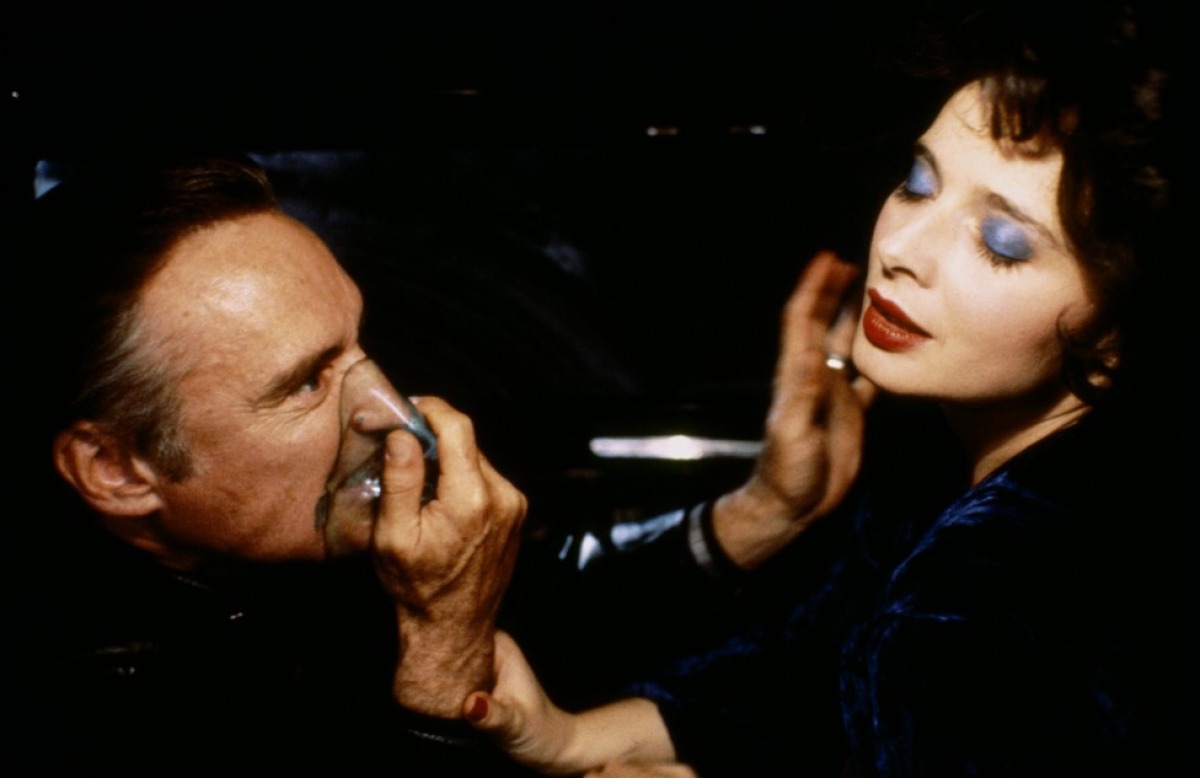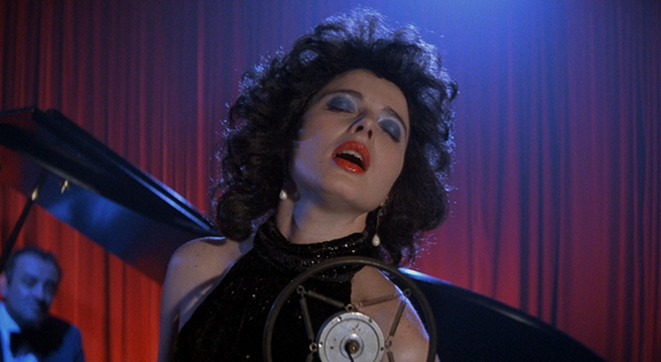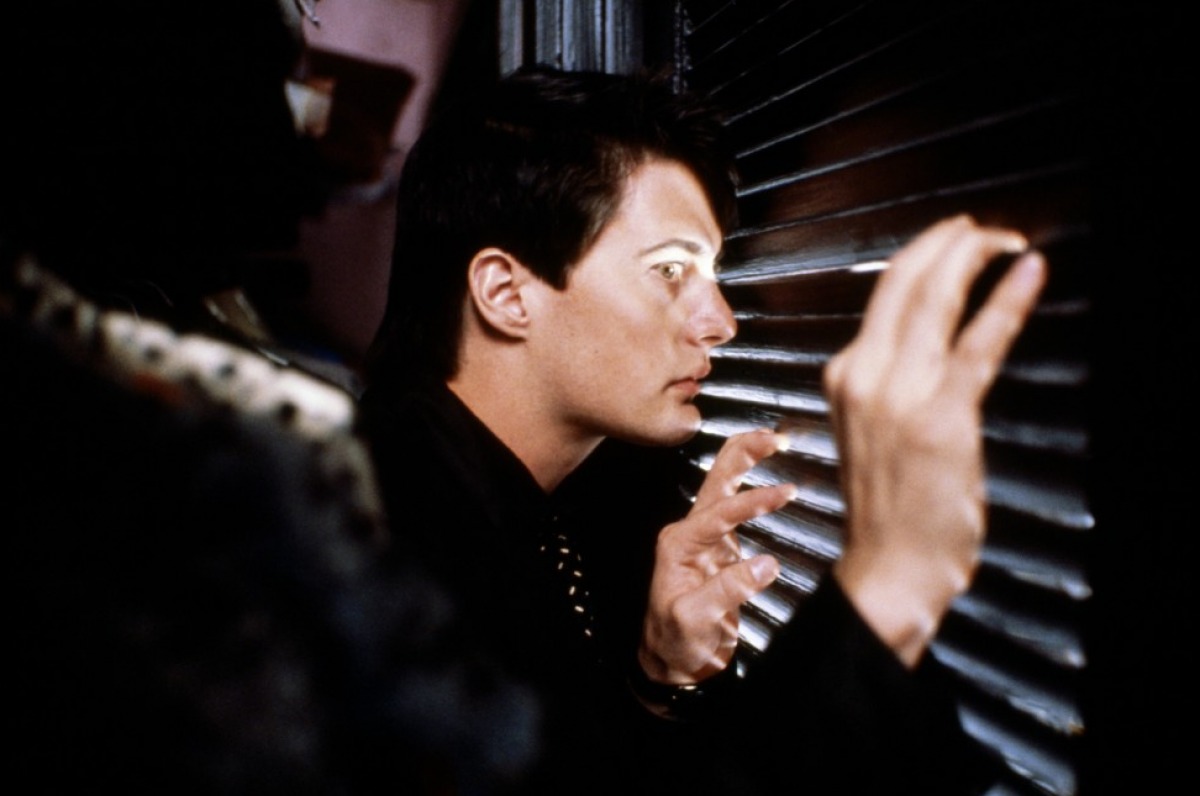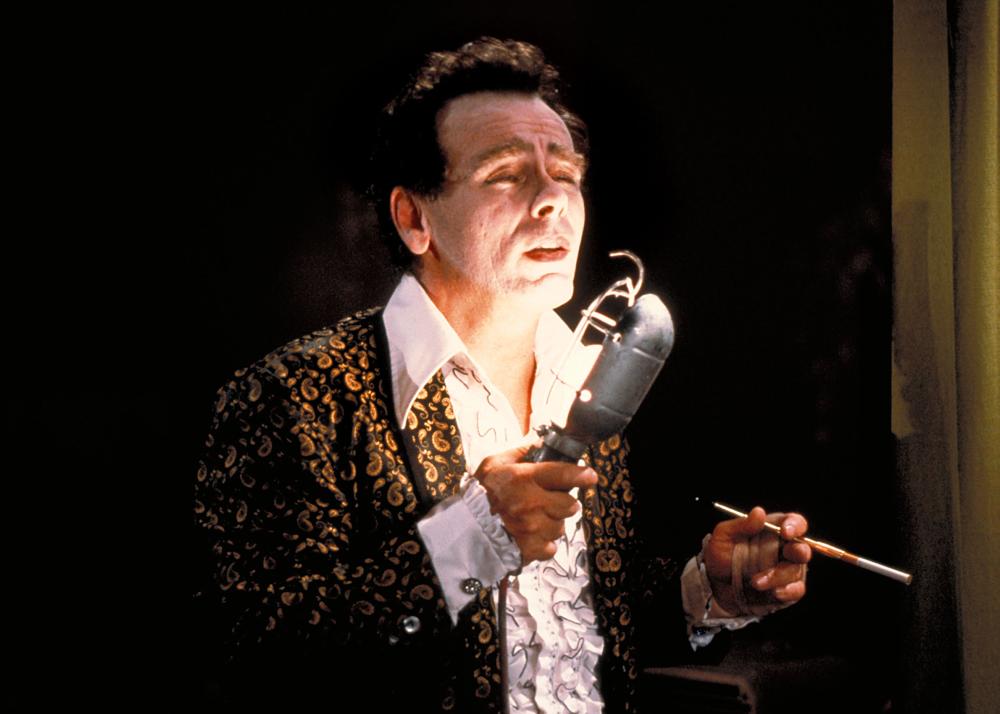
“Maybe I’m sick, but I want to see that again.”
– Pauline Kael
It’s a strange world, isn’t it?
Feigned amidst the well-manicured lawns and white-picket fences of small-town America breathes David Lynch’s darkly disturbing Blue Velvet. Shaken by a quickening dream logic and the upsetting affections of a bad-tempered film noir from the Decade of Conformity, the 1950s, and the tear-jerker teen melodramas that briefly followed thereupon. The idyllic bliss of Lumberton––Lynch’s version of middle America––salts away ill-lit mysteries, Oedipal liaisons, awful aversions, violence, and even extinction.
Blue Velvet courted controversy straight away for its graphic sexual storminess; Dennis Hopper’s disturbingly ruthless psychopathic villain; Kyle MacLachlan’s deviant voyeuristic hero; and Isabella Rossellini’s almost obsequious sadomasochist sufferer. This disparate and dejected trio combine to exemplify Lynch’s nightmare of trenchant, twisted, and irascible Americana.
These sharp and shrewd approximations of the sleazy strange alongside the warmly recognizable would become trademarks for the director and eventually influence various imitators. But it’s easy to connect the agrarian Lumberton with, say, the affable-at-a-glance avenues of Twin Peaks that would soon supervene.
“I can’t decide if you’re a detective or a pervert.”
– Sandy Williams (played by Laura Dern)
Now it’s dark…

Something of a prodigal son, our collegiate protagonist Jeffrey Beaumont (MacLachlan) returns to Lumberton after his father’s recent stroke. He’s barely back in town before he makes a startling discovery; a severed human ear in the field near his father’s hospital. Jeffrey takes his sickening discovery to police detective John Williams (George Dickerson), but his interest doesn’t die there, where it certainly should.
Soon Jeffrey is all set to do some amateur sleuthing alongside Sandy Williams (Laura Dern)––the detective’s daughter––and these naïve youngsters fail to grasp what they’re getting into beyond the slight and subdued romantic tension building between them as the problem they pursue starts to show that their sleepy little town is actually more deceitful, sinister, and threatening than they can well imagine.
Jeffrey’s curiosity, arguably unhealthy as events escalate, soon finds him entangled in the life of put-upon lounge singer Dorothy Vallens (Rossellini), a vulnerable beauty whose husband and child have been taken hostage by Frank Booth (Hopper). Frank is a fierce tormentor, an uncivilized, nasty, and unstable personality with a penchant for huffing from an oxygen tank and eruptions of unforeseeable savagery.
And all the while as the plot grows thick and the risks run higher there’s an off-kilter ambience, in turn hypnogogic, darkly humorous, and freakishly fascinating.
“The most brilliantly disturbing film ever to have its roots in small-town American life.”
– Sheila Benson, Los Angeles Times
I’m in the middle of a mystery

Disquieting spectacles persist throughout Blue Velvet such as the scene where Jeffrey, hiding in Dorothy’s closet, beholds Frank’s frenzied and convulsive attack and rape of Dorothy. She’s deliberately dressed in a blue velvet robe, and the act, so repulsive and ferocious, seems somehow to represent Lynch’s unflinching impudence.
It’s a terribly hard scene to stomach, as it should be, and it’s also a fine example of how, in Blue Velvet, the camera is an uncompromising and unwavering eye. Surely this is a film about perception, bearing witness, and seeing more than we want to see.
Jeffrey, trapped in Dorothy’s apartment cannot help but observe and almost feel implicated in her living hell. Even when she catches him and his alarm and panic is made palpable do we see Blue Velvet as illusory eye-opener. Jeffrey the voyeur, and us by proxy, experience arousal, indulgence, and privilege, but then when discovered this turns to wide open terror. It’s suddenly the voyeur’s turn to be abject and brutalized.
“Other directors labor long and hard to achieve the fevered perversity that comes so naturally to David Lynch… [Lynch has] established his beachhead inside the realm of the bizarre, but this latest venture takes him a lot further. Kinkiness is its salient quality, but Blue Velvet has deadpan humor too, as well as a straight-arrow side that makes its eccentricity all the crazier. There’s no mistaking the exhilarating fact that it’s one of a kind.”
– Janet Maslin, The New York Times
You’re so fucking suave!
Blue Velvet had a dubious reputation from the start, and nobody wanted to touch the movie. Lynch’s previous film, Dune (1984) was a disastrous flop but still Dino De Laurentiis, at considerable risk, set up his own distribution company to get the film released. To maintain artistic control Lynch took a lower salary with the caveat that he have final cut of the film. It was a compromise that surely saved the film while preserving Lynch’s integrity and breadth of view.
“Blue Velvet is a big film about the innocence and perversion that characterizes childhood.”
– David Lynch
In dreams I walk with you

One of Lynch’s trademarks which first emerged with Blue Velvet was his clever and discerning use of pop music. Here for instance, the rather innocent titular pop ballad, while nostalgic, reaches atmospheric feats of strength and creepy crescendo once composer Angelo Badalamenti got to mess with it. This collaboration would be the first of so many between Badalamenti and Lynch (perhaps most notably with Twin Peaks and Mulholland Drive). Also the astute observer will see Badalamenti at the piano when Dorothy sings “Blue Velvet” at the Slow Club in a very memorable scene.
To many fans of Blue Velvet the scene that perhaps uses popular music the most indelibly and perversely is also the only scene with Dean Stockwell.
As Frank’s fearsome, effeminate, and seriously fucked up accomplice Ben, a pimp, facilely postures graciousness as he takes Frank’s request to mime Roy Orbison’s “In Dreams”––and very nearly usurps Hopper for title of deranged lunatic of the film. Threatening, bad-tempered, eccentric and utterly deranged, has anyone been able to hear the lines, “A candy-colored clown they call the sandman tiptoes to my room every night” without getting the all-overs ever since? Nah, I didn’t think so.
“I’ll send you a love letter. You know what that is? It’s a bullet from a fuckin gun! If you get a love letter from me, you’re fucked forever!”
– Frank Booth (played by Dennis Hopper)
Where is my dream?

When the storm passes and the worst is over in Blue Velvet, Lynch echoes an earlier shot, a close-up of an ear. This time the ear is not severed and nor is it disintegrating in an antithetical setting, no, now it’s Jeffrey’s, and it’s blush, intact, and whole. As Jeffrey has returned from the abyss and stirred from his long dark night of the soul we must satisfy ourselves with this abeyance and whatever peace it affords.
Jeffrey and Sandy renew their promise to one another as sweethearts and they witness a robin, which recalls Sandy’s earlier dream, as an embodiment of love, and of light vanquishing diablerie. Has evil left them for good? The writhing insect in the robin’s beak seems to suggest, at least symbolically, the presence of evil still on the outside, never distant, beyond perception perhaps, but there all the same.
Blue Velvet leaves the viewer rattled, invigorated, and certainly remade, while Orbison’s aching lament makes for a fine and assuredly spooky closing quota: “It’s too bad that all these things / Can only happen in my dreams / Only in dreams / In beautiful dreams…”
Author Bio: Shane Scott-Travis is a film critic, screenwriter, comic book author/illustrator and cineaste. Currently residing in Vancouver, Canada, Shane can often be found at the cinema, the dog park, or off in a corner someplace, paraphrasing Groucho Marx. Follow Shane on Twitter @ShaneScottravis.